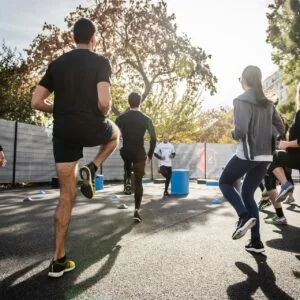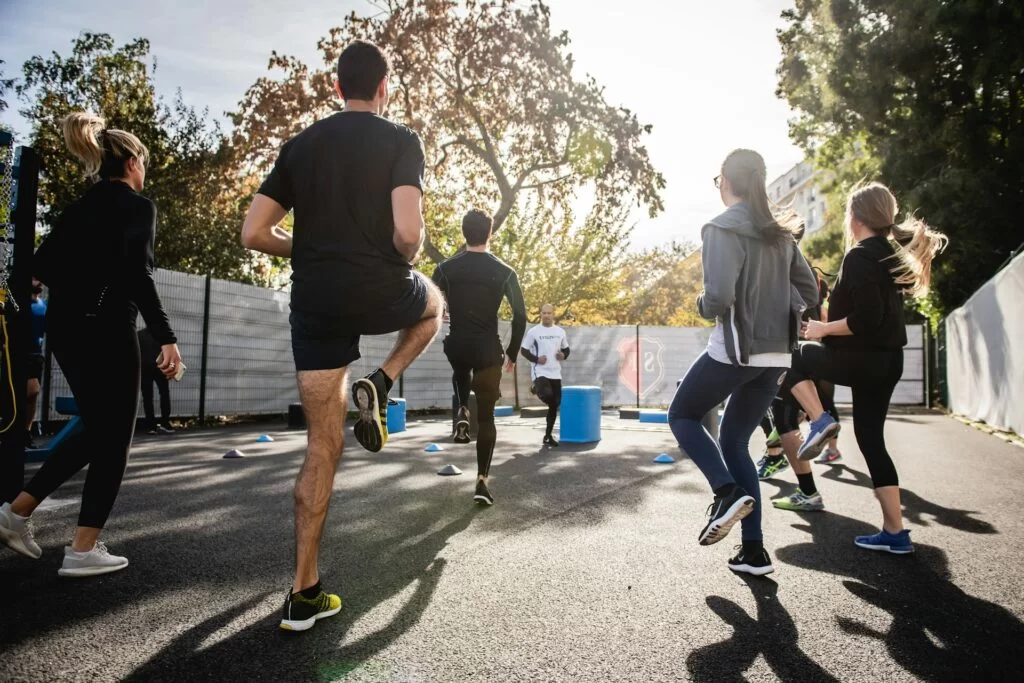No products in the basket.

In the fast-paced construction world, mental health often takes a backseat amidst the hustle and bustle of project deadlines and physical demands. However, at Workforce Skills Support, we firmly believe that the well-being of our team is paramount. We currently offer employees a business healthcare plan through Vitality which provides access to a range of health and wellbeing benefits and pathways to empower our employees to improve their health and rewards for healthy habits. This includes 50% on gym membership, a 12-month subscription to Headspace, and a Vitality health check.
As Mental Health Week unfolds, we’re committed to sharing comprehensive insights and practical strategies to support mental wellness within the construction sector.

Meet Natalie:
Natalie, our esteemed director, stands at the forefront of our dedication to employee well-being. Natalie’s leadership embodies a holistic approach that emphasises the importance of mental and physical health in the workplace. Her commitment to nurturing a supportive environment sets the tone for our collective efforts toward improved mental wellness.
Embracing Movement for Mental Wellness:
In an industry where physical exertion is par for the course, integrating movement into our daily routines is beneficial for maintaining mental wellness. Research consistently demonstrates the profound impact of regular physical activity on mood regulation, stress reduction, and cognitive function. Therefore, incorporating movement into our workdays isn’t merely an optional indulgence but a strategic investment in our mental resilience.
Setting Attainable Movement Goals:
The journey towards prioritising movement for mental health begins with setting realistic and achievable goals. Whether it’s committing to a daily walk around the construction site or incorporating brief stretching sessions into our breaks, establishing tangible objectives provides a roadmap for progress. By breaking down larger fitness aspirations into smaller, manageable steps, we empower ourselves to gradually build momentum and experience the cumulative benefits of sustained physical activity.
Combatting Sedentary Habits:
Not everyone in the construction industry has labourious jobs – a lot of us are also office-based and spend long hours of sedentary work. It’s important to actively combat the adverse effects of prolonged sitting. Incorporating regular movement breaks throughout the workday can mitigate the negative impact of sedentary behaviour on both physical and mental health. Encouraging team members to stand, stretch, or take brief walks not only enhances circulation and alleviates musculoskeletal strain but also promotes mental alertness and productivity.
Infusing Joy into Movement:
While the notion of exercise may evoke images of gruelling gym sessions or monotonous routines, it’s essential to recognise that movement can—and should—be enjoyable. Embracing activities that bring us genuine pleasure, whether it’s taking a short stroll during lunch break or engaging in a dance-off to upbeat music, fosters a positive association with physical activity. By infusing joy into our movement practices, we cultivate sustainable habits that contribute to long-term mental well-being.

Fostering Connections Through Movement:
Beyond its individual benefits, movement also serves as a way to foster meaningful connections within our team. Group activities such as walking meetings or team sports can also create opportunities for shared experiences and mutual support. By prioritising collective movement initiatives, we strengthen teamwork, communication, and workplace community while simultaneously enhancing our mental resilience as a cohesive unit.
Embracing Diversity in Movement:
Recognising that everyone’s relationship with movement is unique, we celebrate diversity in our approaches to physical activity. Whether it’s engaging in high-intensity workouts, practising yoga, or simply enjoying leisurely strolls, there is no one-size-fits-all prescription for movement. By honouring individual preferences and capabilities, we foster an inclusive environment that encourages each team member to pursue their unique path toward improved mental wellness.
Cultivating Mindful Movement Practices:
In addition to the physical benefits of movement, cultivating mindfulness during exercise can further enhance its therapeutic effects on mental health. Mindful movement involves being fully present and attentive to the sensations, thoughts, and emotions that arise during physical activity. By practising mindfulness techniques such as focused breathing or body scan exercises, we deepen our connection to the present moment and cultivate a sense of inner calm amidst the chaos of our work environment.
Exploring the Healing Power of Nature:
As construction professionals, we often find ourselves immersed in urban landscapes devoid of natural elements. However, carving out opportunities to engage in movement within natural environments can offer profound benefits for mental well-being. Whether it’s embarking on scenic hikes, cycling through lush trails, or simply basking in the serenity of a nearby park, connecting with nature replenishes our spirits and rejuvenates our minds.
Embracing Novel Movement Experiences:
Stagnation breeds complacency, while novelty breeds growth. Embracing new movement experiences not only keeps our physical routines fresh and engaging but also stimulates cognitive engagement and creativity. Whether it’s trying out a new fitness class, mastering a new sport, or exploring unconventional forms of movement like aerial yoga or rock climbing, stepping outside our comfort zones expands our horizons and invigorates our minds.
Strategically Planning Movement-Based Activities:
Integrating movement-based activities into our schedules requires intentional planning and prioritisation. By proactively scheduling time for physical activity and treating it as non-negotiable appointments, we honour our commitment to mental wellness and ensure that movement remains a central pillar of our daily routine. Whether it’s allocating time for a midday walk, participating in group fitness classes, or engaging in recreational sports leagues, incorporating movement into our calendars reinforces its significance as a foundational aspect of our well-being.
Motivational Power of Music:
Music extends beyond mere entertainment—it serves as a potent motivator for movement. Curating playlists filled with upbeat tracks or energising tunes can invigorate our workouts and elevate our mood during physical activity. Whether it’s listening to our favourite songs during solo runs, participating in group dance sessions, or synchronising movements to the rhythm of the music, harnessing the motivational power of music enhances our overall enjoyment and engagement with movement.
Nurturing Self-Compassion and Rest:
While physical fitness and productivity is important, it is also important to cultivate self-compassion and prioritise rest. Acknowledging our limitations, honouring our bodies’ signals, and embracing restorative practices are essential components of a sustainable movement routine. By fostering a culture of self-care and compassion within our team, we create an environment where individuals feel empowered to listen to their bodies, prioritise their well-being, and establish healthy boundaries around movement and rest.
Celebrating Milestones and Progress:
Amidst the daily grind of construction projects, it’s easy to overlook the significance of our movement-related achievements. However, taking time to acknowledge and celebrate milestones—whether it’s reaching a fitness goal, mastering a new skill, or simply maintaining a consistent exercise routine—is essential for cultivating a positive mindset and reinforcing motivation. By celebrating our progress, however incremental it may seem, we affirm our commitment to personal growth and well-being, inspiring ourselves and others to continue on the path towards optimal mental health.
In the construction world, where physical demands and tight deadlines often overshadow considerations of mental health, prioritising mental health, movement and mindfulness is not just a luxury—it’s a necessity. By embracing practical strategies to integrate physical activity, mindfulness, and self-care into our daily routines, we fortify our mental resilience, enhance our overall well-being, and cultivate a workplace culture that values and prioritises mental health and the health and happiness of every individual. Let us commit to supporting one another on this journey towards holistic wellness, recognising that by nurturing our minds and bodies, we lay the foundation for a brighter, healthier future in the construction industry and beyond. We have a Mental Health Awareness course designed for enhancing mental well-being in the workplace.